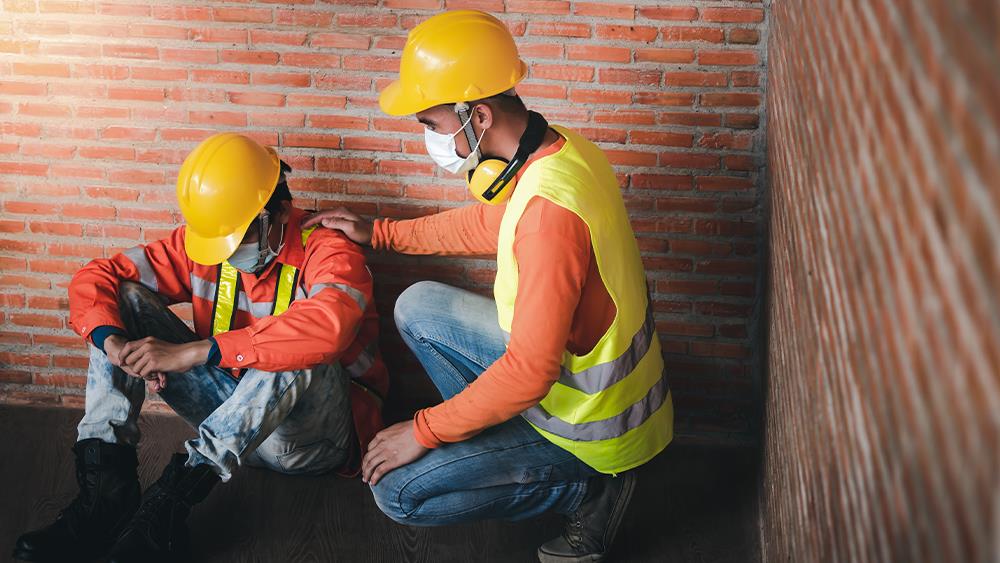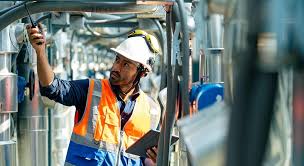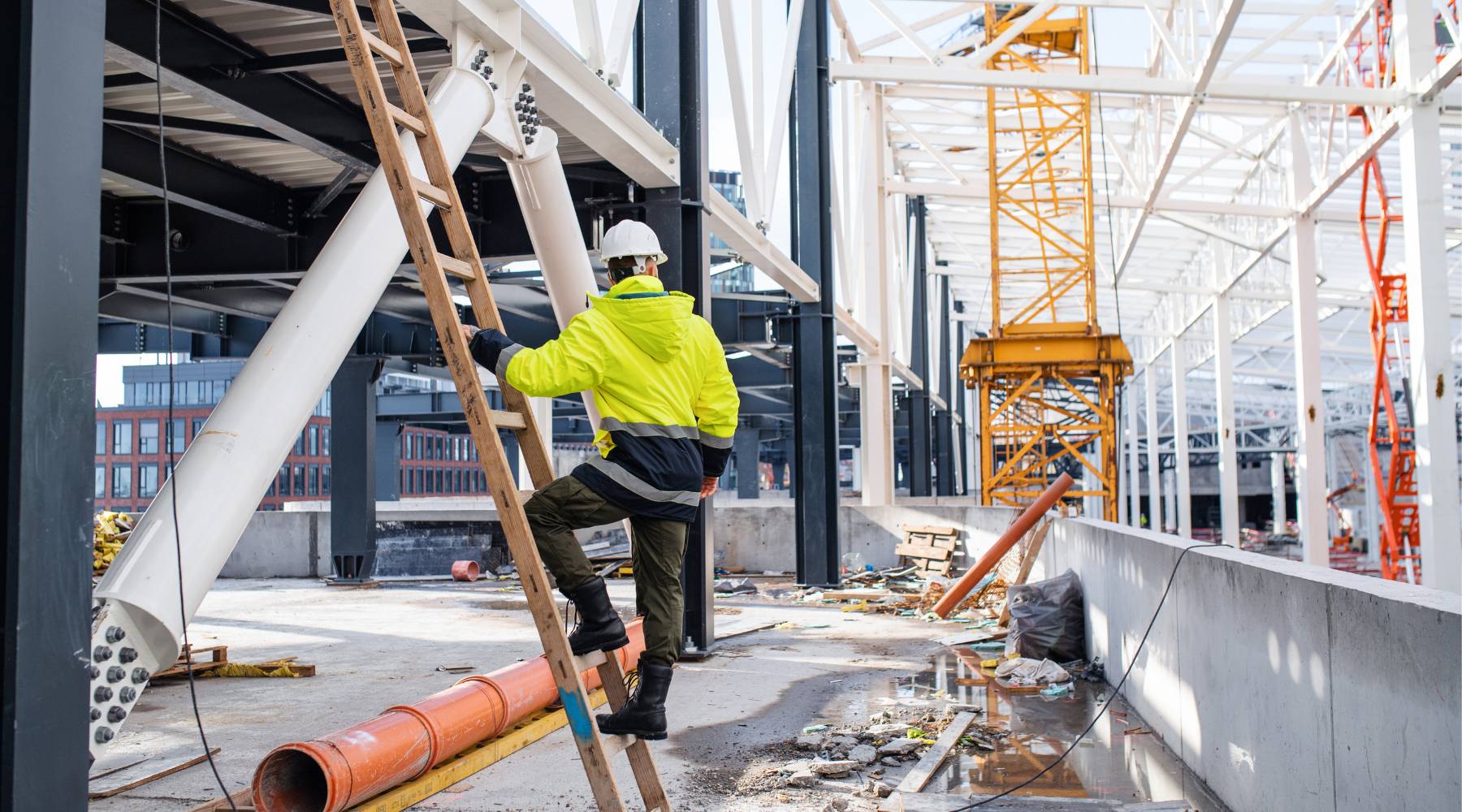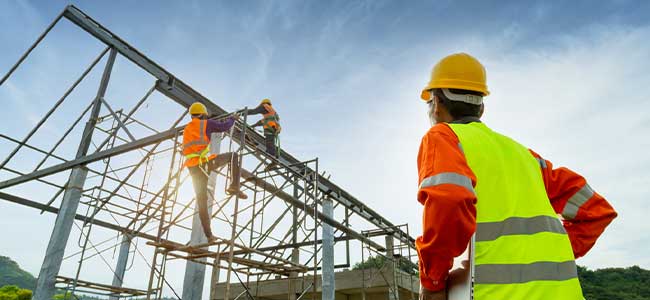Health and Safety First: Supporting Mental Health in Construction

Strong 8k brings an ultra-HD IPTV experience to your living room and your pocket.
The construction industry has long been associated with physical risk and injury, but an often overlooked aspect of worker welfare is mental health. With rising awareness of mental health issues across various sectors, there’s a growing recognition of the need for improved mental health support in construction. The physical demands, long hours, and high-stress environment can take a toll on workers, leading to mental health challenges such as anxiety, depression, and burnout. This is where initiatives like Mates in Mind play a crucial role in fostering a supportive and open culture within the sector.
The Mental Health Crisis in Construction
Construction workers are more likely to experience mental health issues than those in many other professions. Research has shown that construction workers are three times more likely to commit suicide than the general population, with male workers particularly at risk. The reasons behind this are varied, but stress, financial insecurity, and job instability are significant contributing factors.
Workplace pressures in construction are often heightened by the need to meet tight deadlines, work in challenging conditions, and deal with constant changes in projects. Coupled with a traditionally "tough" industry culture, where showing signs of vulnerability is often discouraged, many workers struggle to access the help they need. This is where initiatives like Mates in Mind, which aims to raise awareness and reduce the stigma surrounding mental health, can make a substantial difference.
What is Mates in Mind?
Mates in Mind is a mental health initiative specifically tailored for the construction sector. It was created to address the mental health crisis and provide workers with the tools and support necessary to better manage their wellbeing. It offers a comprehensive approach, including training programs, resources, and a network of professionals to ensure that mental health becomes as integral to the conversation as physical health and safety.
Through programs such as mental health first aid training and the creation of mental health champions on-site, Mates in Mind helps to remove the stigma around mental health. The initiative encourages open dialogue and educates both employers and employees about the importance of mental wellbeing.
The Role of Health and Safety in Mental Health
When people think of "Health and Safety," the first thing that comes to mind is often the physical aspects of safety on construction sites—protecting workers from falls, injuries, and accidents. However, as mental health challenges become increasingly prominent, integrating mental health into health and safety policies is crucial.
Health and safety regulations are not just about protecting workers from physical harm but ensuring their overall wellbeing. In areas like Health and Safety in Essex and Health and Safety in Hertfordshire, organizations are beginning to recognize the importance of mental health as part of their broader safety policies. By incorporating mental health training into safety protocols, employers can create a safer, more supportive working environment for everyone involved.
Why Mental Health is Just as Important as Physical Health
Mental health issues can have severe consequences for both workers and employers. A worker struggling with mental health might experience a decline in productivity, a greater risk of injury, or an inability to perform to the best of their ability. Mental health problems can also lead to high levels of absenteeism and turnover, which ultimately affects the bottom line.
The construction industry can be particularly challenging because many workers spend long hours away from home, sometimes in isolated or uncomfortable working conditions. The nature of the work often requires workers to push through difficult physical and mental conditions, which can exacerbate existing mental health problems. The lack of visible signs of mental health issues can also make it more difficult for employers to recognize when someone is struggling.
Therefore, incorporating mental health into health and safety practices isn’t just about providing support—it's about recognizing that mental health impacts both the individual and the company. By promoting mental wellbeing, businesses can ensure a more stable, productive, and happy workforce.
Addressing Mental Health Stigma
One of the most significant challenges in the construction sector is overcoming the stigma surrounding mental health. In a traditionally male-dominated industry, there can be a strong sense of pride in "toughness," leading workers to avoid admitting when they are struggling emotionally or mentally. The fear of being labeled as weak or unfit for the job prevents many from seeking the support they need.
This is why initiatives like Mates in Mind focus on reducing the stigma and promoting an open, inclusive environment. Through awareness campaigns, confidential support services, and mental health training for supervisors and site managers, workers are encouraged to speak up and seek help when they need it.
By encouraging open dialogue about mental health and providing the necessary resources, Mates in Mind is helping to create a more supportive work culture in the construction industry. This shift is not only crucial for the workers but for the overall success and wellbeing of the industry as a whole.
Supporting Mental Health at Every Stage
It is vital to recognize that mental health support in construction needs to be woven into every aspect of the work environment, from recruitment to retirement. Creating a culture of support starts with training and educating workers at all levels. Employers must prioritize mental health just as they would any physical hazard to ensure long-term sustainability and reduce the risks associated with untreated mental health problems.
Workplaces can provide peer-to-peer support networks, access to counselling, or wellness programs to help workers address mental health challenges early. In areas like Health and Safety in Essex and Health and Safety in Hertfordshire, progressive organizations are beginning to integrate these mental health resources into their health and safety policies. By ensuring that mental health is treated as equally important as physical safety, the construction sector can foster a healthier, more resilient workforce.
Conclusion
In conclusion, mental health support in the construction sector is not just a nice-to-have; it's essential for the overall health and productivity of workers. Initiatives like Mates in Mind are leading the charge in reducing stigma, providing training, and ensuring that mental health is recognized as an integral part of health and safety. With growing support for mental wellbeing in areas like Health and Safety in Essex and Health and Safety in Hertfordshire, the construction industry is slowly but surely making strides toward a more inclusive and supportive culture. It’s time for every construction worker to be able to say, “I’m okay, and it’s okay to not be okay.
Note: IndiBlogHub features both user-submitted and editorial content. We do not verify third-party contributions. Read our Disclaimer and Privacy Policyfor details.







